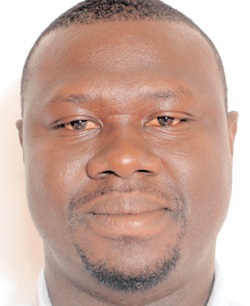The House of Parliament, that venerable arena where the echoes of democracy resound, stood hushed and solemn. Clad in mourning attire, the members gathered in a sea of black and red to mourn their fallen comrade.
Dr. John Kumah, the MP for Ejisu Constituency, had departed this earthly stage, leaving behind a void that no legislation could fill.
In the corridors, whispers floated like ghosts. “John Kumah,” they murmured, as if invoking a sacred name. He was more than a politician; he was a friend, a brother.
His smile, etched in memory, spoke of camaraderie forged in the crucible of public service. We, the witnesses to his legacy, stood there, our hearts heavy with the weight of farewell.
And then there was Sir John – the sage, the mentor. His absence cast a shadow, a silhouette against the sunlit windows. Together, they had navigated the complex corridors of power, their loyalty unwavering. In an era of shifting allegiances, they remained steadfast – an anchor in the storm of political waters.
I recall the day I sought their help. It was a desperate plea from a dreamer chasing a scholarship to distant shores. New Zealand beckoned, its academic promise tantalizing.
But bureaucracy, that ancient adversary, stood in my path. Dr. Kumah and Sir John listened, their brows furrowed, their eyes reflecting my frustration. They were not mere politicians; they were advocates, architects of possibility.
“Persevere,” Dr. Kumah said his voice a steady compass. “We will fight for you.” And fight they did by writing letters, making calls and unraveling bureaucratic knots. Their determination was a beacon, cutting through the fog of indifference.
In the quietness of pandemic-stricken days, my dream of studying in New Zealand lay dormant. Fate conspired against me. And alongside the departed Sir John, my aspirations were buried. But I persevered for dreams are resilient seeds. Someday, I hoped to board that plane when borders re-open. And I hoped to hear Sir John’s whisper: “Fly, young scholar. Fly and make Asomdwekrom proud.”
That day came three years later. And then, on the day of my departure, as I stood at the airport gate, Dr. Kumah appeared in a neatly tailored suit. He handed me an envelope. “For your journey,” he said with a warm smile. Inside was $300 – a gesture of goodwill and a lifeline across continents. “Make us proud,” he said. “Remember where you come from.”
And so, I left to go through on boarding processes with his words echoing in my ears. I glanced back, catching a final glimpse of Dr. Kumah. He was more than a politician; he was a custodian of hope.
Now, in the land of the dead, he meets Sir John, my other mentor, in a spiritual discussion, debating matters beyond mortal comprehension. Perhaps they discuss policy, or perhaps they share stories of earthly battles won and lost. I imagine Dr. Kumah’s booming laughter and Sir John’s wry wit echoing through cosmic chambers.
And here, in the realm of the living, we honor them. We wear our mourning attire not as a shroud of defeat, but as a banner and a testament to their legacy, for they taught us that politics need not devour compassion as ambition can coexist with empathy.
So, let the ink flow and let the pages open out. Let us write their eulogy with style and panache – a symphony of words that captures their essence. Dr. John Kumah, the bridge-builder; Sir John, the guardian, may their names resonate through history, inspiring generations yet unborn.
As the sun sets on this chapter, we raise our pens, which are our swords of remembrance. Farewell, dear friends. May your souls find solace in heavenly debates, and may your memory be a guiding star for those who follow.
Abusuapanin, I’m deeply saddened as the world has become a mere cacophony and a relentless symphony of tweets, posts, and notifications. We are no longer mere mortals; we are data points, pixels on screens, our lives dissected and displayed for the voyeuristic masses. Privacy, once a sacred cloak, now lies tattered, trampled by the stampede of hash tags and emojis.
Someone passes away and the digital vultures descend with all manner of speculation and half-truths. The family, still grappling with the raw edges of grief, stumbles into the spotlight. Their pain, once private, now a trending topic on social media. The departed soul is robbed of dignity as he becomes a pawn in this grand theatre of speculations.
They whisper all manner of conspiracy stories as their voices echo through the air. Was it foul play? Was it fate? They weave narratives from different threads. The widow, her tears ignored, takes to the airwaves in a desperate plea for silence. But media and digital dinosaurs refuse to heed to her plea. It seems respect has now been buried beneath the rubble of tweets and re-tweets.
And then came the pulpit vultures. You may also call them prophets of doom and the seers of bizarre heavenly stories. They only prophesy on screens in order to delude the masses into believing that they possess superior powers. They claimed to have seen visions and revelations of the death of the departed even before it happened.
When in reality, they knew the departed was terminally ill. The widow listens, her heart a battlefield of grief and indignation. She pleads for peace and the tranquility to mourn her beloved husband. But the pulpit vultures have no ears; they continue to preach gloom and doom.
How sad! Respecting the privacy of the departed is like holding a fragile bird in your hands. Grief needs space and a quiet room where memories can unfold without intrusion. Let us honor that silence, allowing families to mourn undisturbed.
See you next week for another interesting konkonsa, Deo volente!


